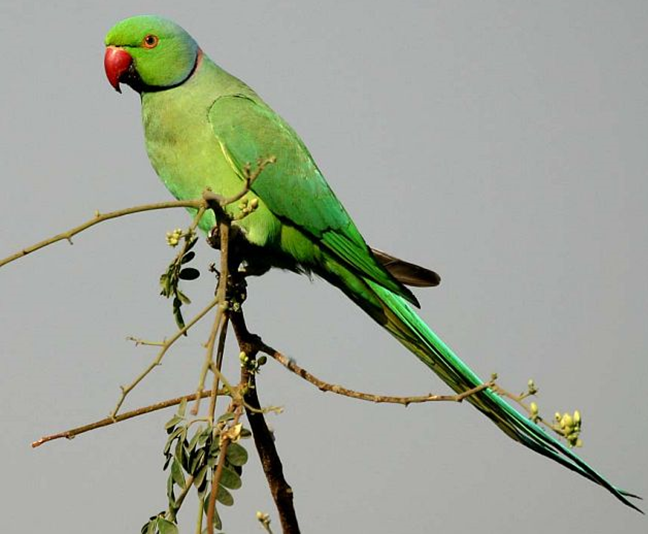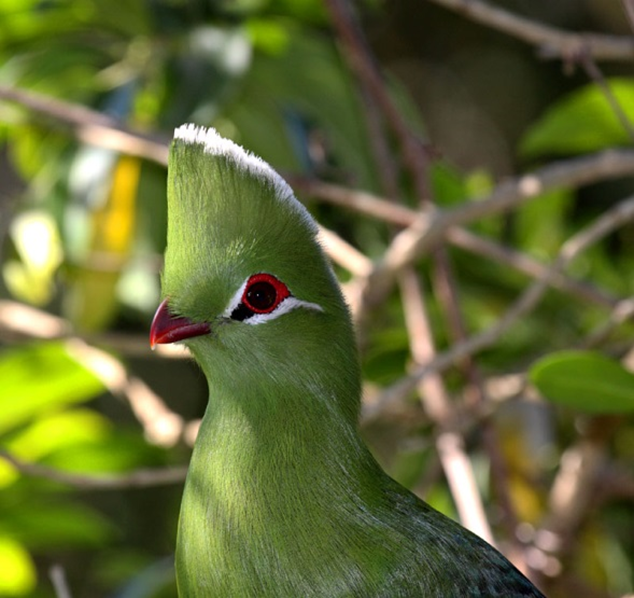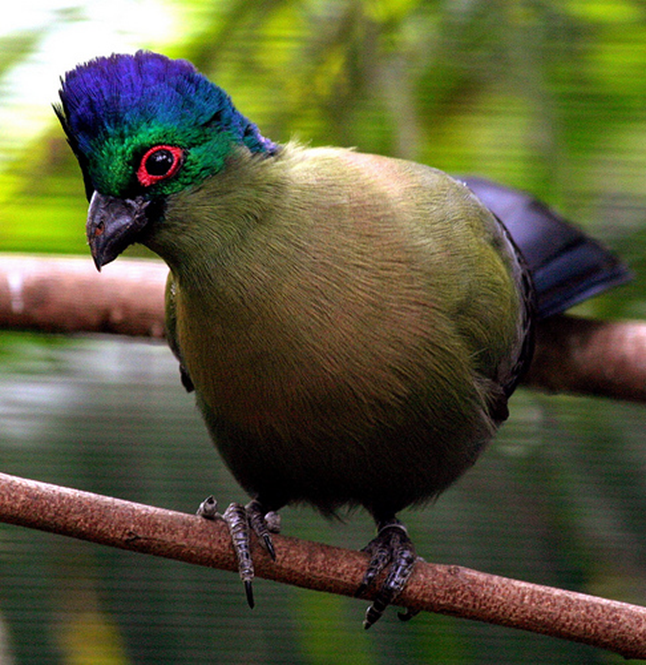A recent study by C·I·B student, Vuyisile Thabethe and colleagues assessed how the germination of invasive seeds are influenced after being eaten by indigenous, Knysna (Tauraco corythaix) and purple-crested (Gallirex porphyreolophus) turacos, and invasive, rose-ringed parakeets (Psittacula krameri). To test this, fruits of four invasive alien plants: bugweed (Solanum mauritianum), camphor (Cinnamomum camphora), guava (Psidium guajava), and mulberry (Morus alba), were fed to the rose-ringed parakeets and turacos. The seeds from each bird’s excreta or regurgitation were removed and planted separate trays.

Vuyisile found that seeds passing through the gut passage of the two indigenous birds’ had higher rates of germination. In contrast, seeds passing through the digestive tract of rose-ringed parakeets had lower rates of germination. The results suggest that turacos are seed dispersers of these fleshy-fruited invasive alien plants, while rose-ringed parakeets are seed predators. Damage to the seeds can be caused by the parakeets crushing them while feeding and/or destruction of viable seeds in the digestive tract.
“Although parakeets are not promoting the spread of invasive alien plants, indigenous plants may suffer similar fates and have reduced germination rates,” says Vuyisile Thabethe, lead author of the study. She adds, “This is perhaps one of the first studies highlighting the destructive behaviour of rose-ringed parakeets on indigenous fruiting plants in South Africa.”
Read the paper
For more information, contact Vuyisile Thabethe at thabethevuyisile@yahoo.com or Prof. C T Downs at downs@ukzn.ac.za


